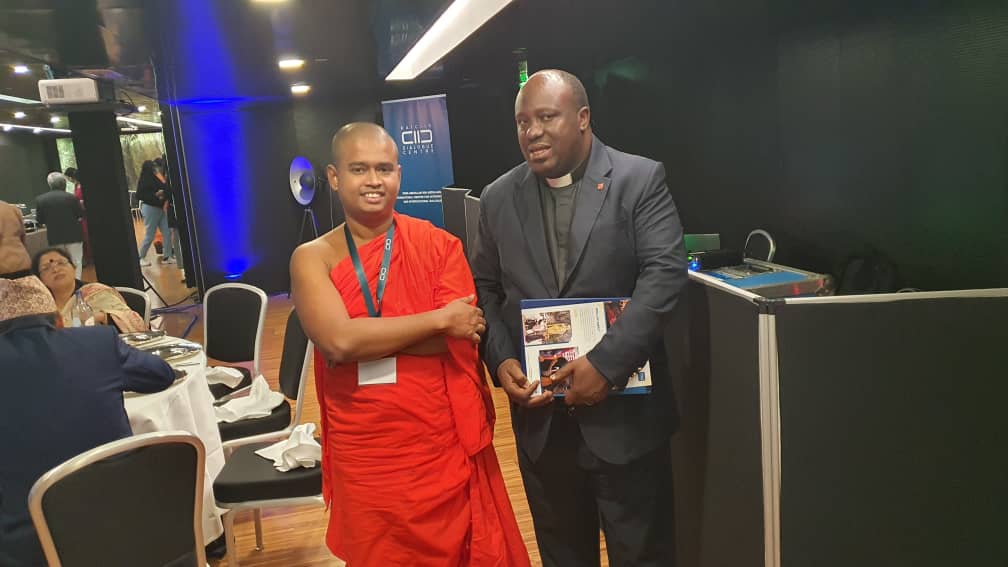
Some fellowship programs tackle global challenges while promoting peace and mutual understanding. One such organization dedicated to religious peacebuilding is the King Abdullah bin Abdulaziz International Centre for Interreligious and Intercultural Dialogue, or KAICIID. Founded jointly by Saudi Arabia, Spain, and Austria, KAICIID is an intergovernmental organization (IGO) dedicated to stimulating dialogue and peace between disparate religious and cultural communities while also fostering a community of leaders among said communities.
The KAICIID Fellows Programme is the organization’s flagship initiative to achieve peace between religious communities. To learn more about what the program offers, we spoke with KAICIID Fellow Paul Mdumi, a Christian reverend and religious administrator from Tanzania whose professional activities defy simple labels. In this interview, Rev. Mdumi goes over his personal background, experience with the KAICIID Fellows Programme, and various advice he would give to those who wish to follow in his footsteps.
To begin, could you tell us a little bit about yourself?
My roots in interfaith relations stem from a deeply personal place. I grew up in a unique religious backdrop where my father, born into a Muslim family, made a significant transition and became a first-generation Christian, eventually serving as a pastor. This fusion of faiths in my own family ignited a curiosity in me about the intersections of different religions and the unique narratives each held.
While I deeply admired and revered my father’s career as a pastor, I initially hesitated to tread a similar path. However, destiny had its own plans, and three years after high school, I found myself joining a theological school to pursue a Bachelor of Divinity. This formal introduction to theology was just the beginning.
Working as a congregational pastor, I was placed in Zanzibar (an archipelago off the coast of Tanzania), a place with a fascinating religious demographic – 99% Muslims and 1% Christians. This experience was a true eye-opener. In such a setting, religion wasn’t just a personal belief but a definitive force in public life. It was evident how religion could serve as both a unifying force and, unfortunately, a trigger for conflict and violence.
Recognizing the need for deeper understanding and bridge-building, I pursued an MA in Islam and Christian-Muslim Relations at St. Paul’s University in Kenya. My intent was clear – I wanted to harness the power of religion as a tool for peacebuilding, especially amongst the youth. Young minds are malleable, and if guided rightly, they can champion peace and coexistence. With the rise in radicalization and violent extremism, my mission has been to redirect these energies towards more productive and meaningful pursuits, advocating for unity and understanding amidst diversity.
Becoming a KAICIID Fellow was a natural progression in this journey. It offered me a platform to further the cause I’m passionate about, reaching out to larger audiences and networking with like-minded peacebuilders and interfaith practitioners.
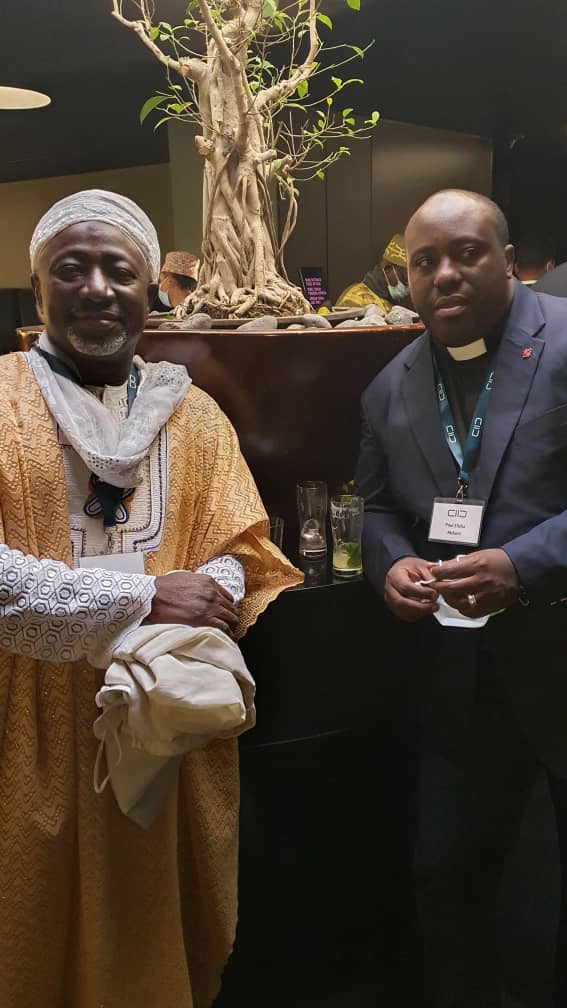
Could you give us details about the KAICIID Fellowship program?
The KAICIID fellowship program has been one of the most transformative experiences in my life. Spanning over a year, the program is designed to be immersive, with three in-person meetings interspersed with numerous virtual sessions and trainings.
Our journey began in Addis Ababa, Ethiopia, which served as the inaugural venue. There, I had the privilege of meeting a diverse group of individuals from all over Africa. Throughout the week, we were equipped with invaluable interreligious and intercultural dialogue skills. These tools, I learned, can be potent in bridging misunderstandings and fostering a spirit of peaceful coexistence.
While we had initially planned a second physical meeting in either Malaysia or Indonesia, the sudden emergence of the COVID-19 pandemic altered our plans, exemplifying the unpredictable challenges that can arise. Despite this setback, the program’s resilience was evident. We transitioned to virtual mediums, ensuring the program’s objectives remained unhindered.
Highlighting our adaptability, the fellowship culminated in a grand reunion in Lisbon, Portugal, where fellows from all corners of the globe gathered. It wasn’t just a conclusion but a celebration of our shared experiences, learnings, and the bonds we’d forged over the year.
A unique aspect of this fellowship was the opportunity it provided in the form of a grant. Each fellow was entrusted to design and implement an initiative centered around dialogue or related themes like the protection of sacred sites. This hands-on experience allowed us to translate our learnings into tangible, on-the-ground projects, producing ripples of change in our respective communities.
What was your average day as a KAICIID Fellow like? What were some interfaith and peacebuilding activities you participated in?
Ah, an average day as a KAICIID Fellow blended learning, collaboration, and reflection. Let me paint a picture for you.
Each morning typically began with a plenary session. These sessions were insightful often led by experts in interfaith dialogue, peacebuilding, or related disciplines. Their narratives provided valuable context, ensuring our practical work was grounded in robust theoretical knowledge.
Post these plenaries, we’d transition into workshops or breakout sessions. This is where the magic truly happened. We’d engage in role-playing exercises, case study analyses, or group discussions. I recall one particular exercise where we were given a real-world conflict scenario and tasked with devising an interfaith dialogue approach to address it. It was both challenging and rewarding, pushing us to apply our learnings tangibly.
Lunch breaks were more than just meal times. Given the diverse backgrounds of the fellows, these breaks became spontaneous cultural exchange sessions. Conversations flowed from the intricacies of African tribal customs to the rich fabric of Asian religious practices. As the saying goes, “To understand another person, you must eat a handful of salt with them.” Our shared meals indeed deepened our bonds and understanding.
The afternoons often saw us venturing outside the confines of our training rooms. Field visits to religious sites, NGOs, or community projects were common. These trips were eye-opening, allowing us to observe interfaith dialogue and peacebuilding in action.
Evenings, though less structured, were equally enriching. I fondly remember an impromptu gathering where a fellow from Nigeria shared stories of his community’s efforts to bridge religious divides while another from Indonesia demonstrated traditional peace rituals.
Throughout this journey, the emphasis was clear: dialogue is more than just talking. It’s about listening, understanding, and building connections that transcend our differences.
In essence, our days were a blend of theory and practice, structured sessions, and organic interactions, all converging towards the noble goal of fostering peace and understanding in our diverse world.
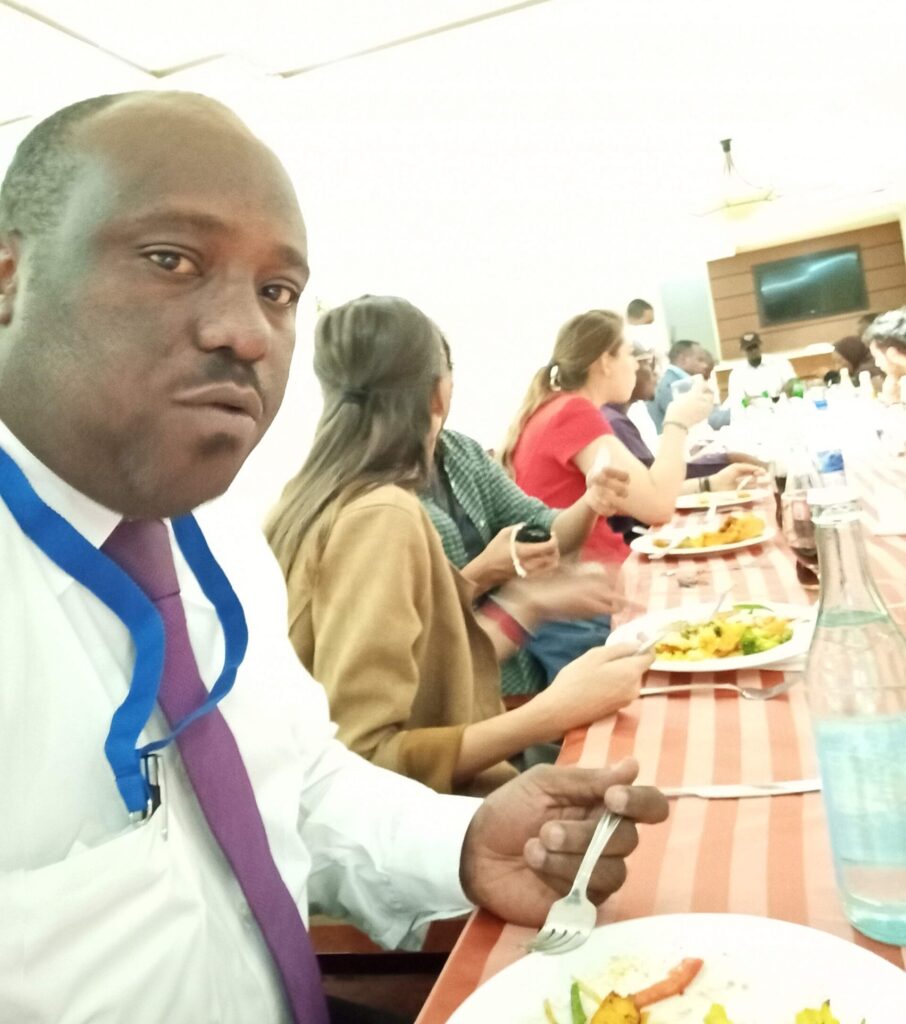
What aspects of the program did you find particularly rewarding personally?
Reflecting upon my time as a KAICIID Fellow, several facets of the program resonate deeply with me on a personal level. Engaging with peers from such varied backgrounds was akin to piecing together a vibrant fabric of cultures. Each interaction, whether it was a shared meal or a heartfelt conversation, revealed that while our faiths might differ, our aspirations and core values often harmoniously intersected. It was a living embodiment of the sentiment that while we might hail from different walks of life, at our core, we all belong to one human race.
Beyond the theoretical components, the program offered profound hands-on experiences. One of the most rewarding elements was the opportunity to bring an idea to fruition, transforming it into a tangible initiative that impacted real lives. This hands-on approach, combined with the grant initiative, was a testament to the program’s commitment to catalyzing real-world change.
The resilience and adaptability the group exhibited in the face of unexpected challenges, like the onset of the pandemic, was another invaluable lesson. It was a testament to our collective spirit how we seamlessly transitioned to virtual sessions, ensuring our mission remained undeterred. This ability to adapt and thrive in the face of adversity was a profound personal takeaway.
Moreover, the KAICIID fellowship wasn’t just a temporary engagement. The continuation of our journey through monthly alumni sessions underscored the program’s commitment to lifelong learning and growth. It was heartening to realize that our quest for knowledge and understanding didn’t culminate at graduation but continued as an ever-evolving journey.
But above all, the bonds forged during this journey have been the most rewarding. The fellowship introduced me to individuals I now consider more than peers; they are a part of my global family, fellow travelers on a shared mission to promote peace and understanding.
In essence, the KAICIID fellowship was not just a professional enrichment but a transformative experience that touched the very core of my being.
Were there any moments that stood out during your interactions with other faiths and nationalities?
The beauty of KAICIID was indeed in its diversity, and it was this very diversity that led to moments of profound revelation and connection. Let me share a couple of anecdotes that have left an indelible mark on my heart. One evening, as the sun set, a group of us found ourselves on a terrace. A fellow from Indonesia began reciting a prayer from his faith tradition. As the verses filled the air, another fellow from Kenya began humming a tune from his own religious background. What started as two distinct melodies seamlessly converged into a harmonious blend. It was a poignant reminder that even in our diversity, there exists a universal rhythm that binds us.
Another memorable moment was during a visit to a local place of worship in Addis Ababa. There, amidst the sacred aura, a conversation blossomed about how different faiths perceive the divine. The discussion was enlightening, not for the differences we discovered but for the striking similarities that underscored our beliefs. There was this profound realization that while our paths might differ, our destination, our search for meaning and connection, is remarkably alike.
Beyond these, there were countless moments of shared laughter over misunderstood translations, the joy of discovering a common favorite dish despite coming from continents apart, and the mutual respect we felt while witnessing each other’s faith rituals. In essence, while KAICIID brought us together as representatives of different faiths and nationalities, it was these shared human moments that truly connected us. It was a vivid testament to the adage, “We are all different, and that’s what makes us the same.”
In what ways have you translated your KAICIID experiences into achieving your personal and professional goals after the program?
The KAICIID fellowship was more than just an academic venture; it became a compass guiding my actions and vision. Personally, it has deepened my understanding and appreciation for diverse faiths, allowing me to foster stronger interfaith relationships in my own community. It’s remarkable how the simple act of listening, learned during the program, can bridge the vastest divides. Professionally, the hands-on experiences, particularly the grant initiative, equipped me with the tools to design and implement impactful projects. I’ve since embarked on various interfaith dialogue initiatives full of confidence, directly inspired by my time at KAICIID. These projects aim not just for dialogue but to create tangible change and foster understanding among diverse groups. It’s a continuation of the fellowship’s mission, and in essence, the program didn’t end for me—it merely evolved into a broader, lifelong pursuit.
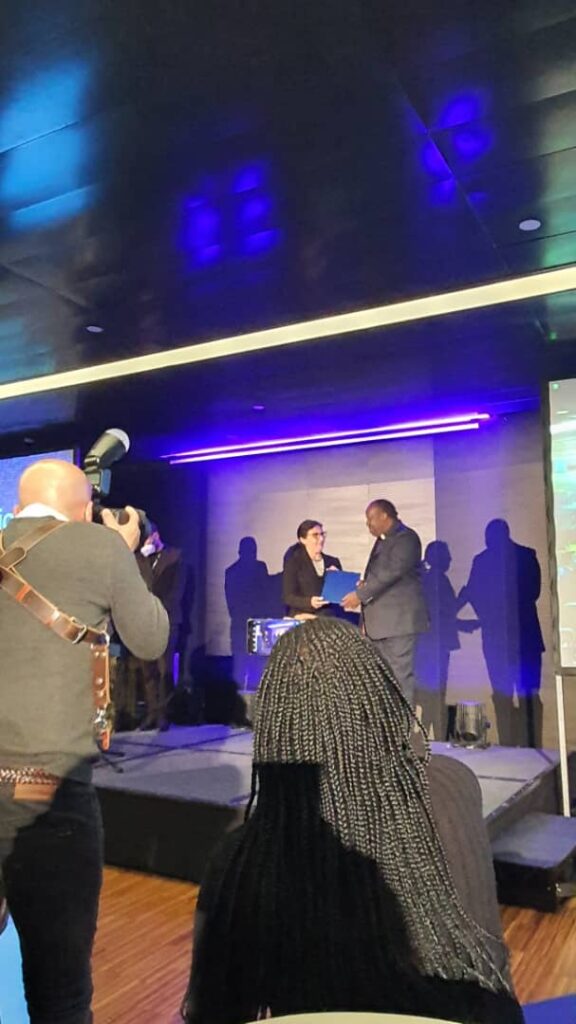
Lastly, what kind of advice would you give to those who wish to make a similar impact as you have?
For anyone aspiring to make a difference in interfaith dialogue and peacebuilding, my foremost advice would be to cultivate a genuine spirit of listening. Before attempting to bridge divides, one must truly understand them. Immersing oneself in diverse communities, reading, and actively engaging in dialogues can be invaluable. Remember, the goal isn’t to change minds but to open them.
As for becoming a KAICIID Fellow, I’d recommend thoroughly researching the program’s objectives and aligning your personal and professional goals with its mission. Once in the program, it’s essential to be present not just physically but mentally and emotionally. Absorb every lesson, participate actively, and build strong networks with fellow participants. They are not just peers; they are potential lifelong collaborators in your journey towards fostering understanding and peace.
Lastly, carry the experience beyond the program. Implement the knowledge gained, and always stay connected with the alumni network. The journey doesn’t end with the fellowship; in many ways, it’s just the beginning.
Interested in applying to this fellowship? Bookmark the KAICIID Fellows Programme to your ProFellow account.
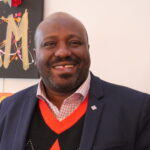
© 2024 ProFellow, LLC. All rights reserved.